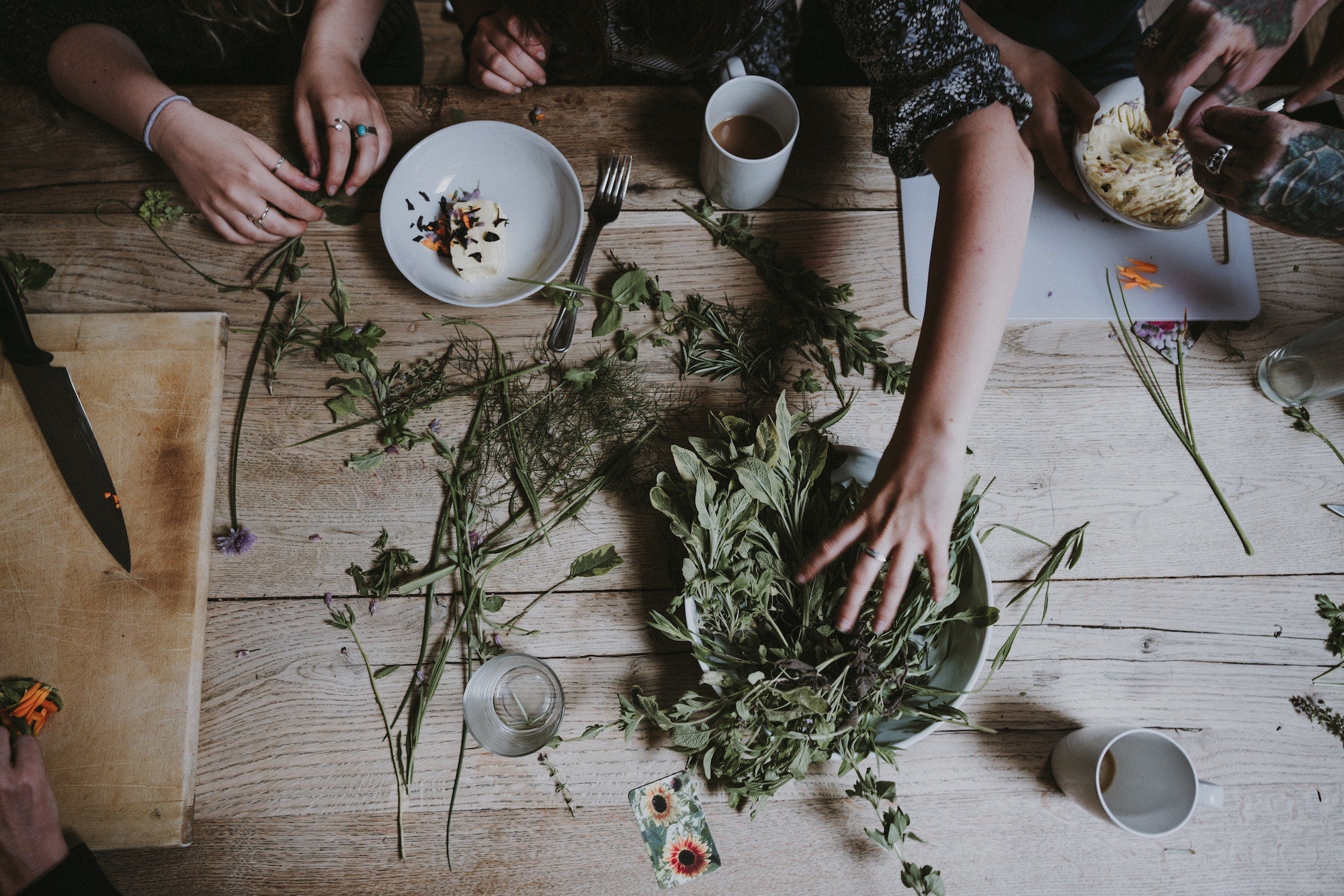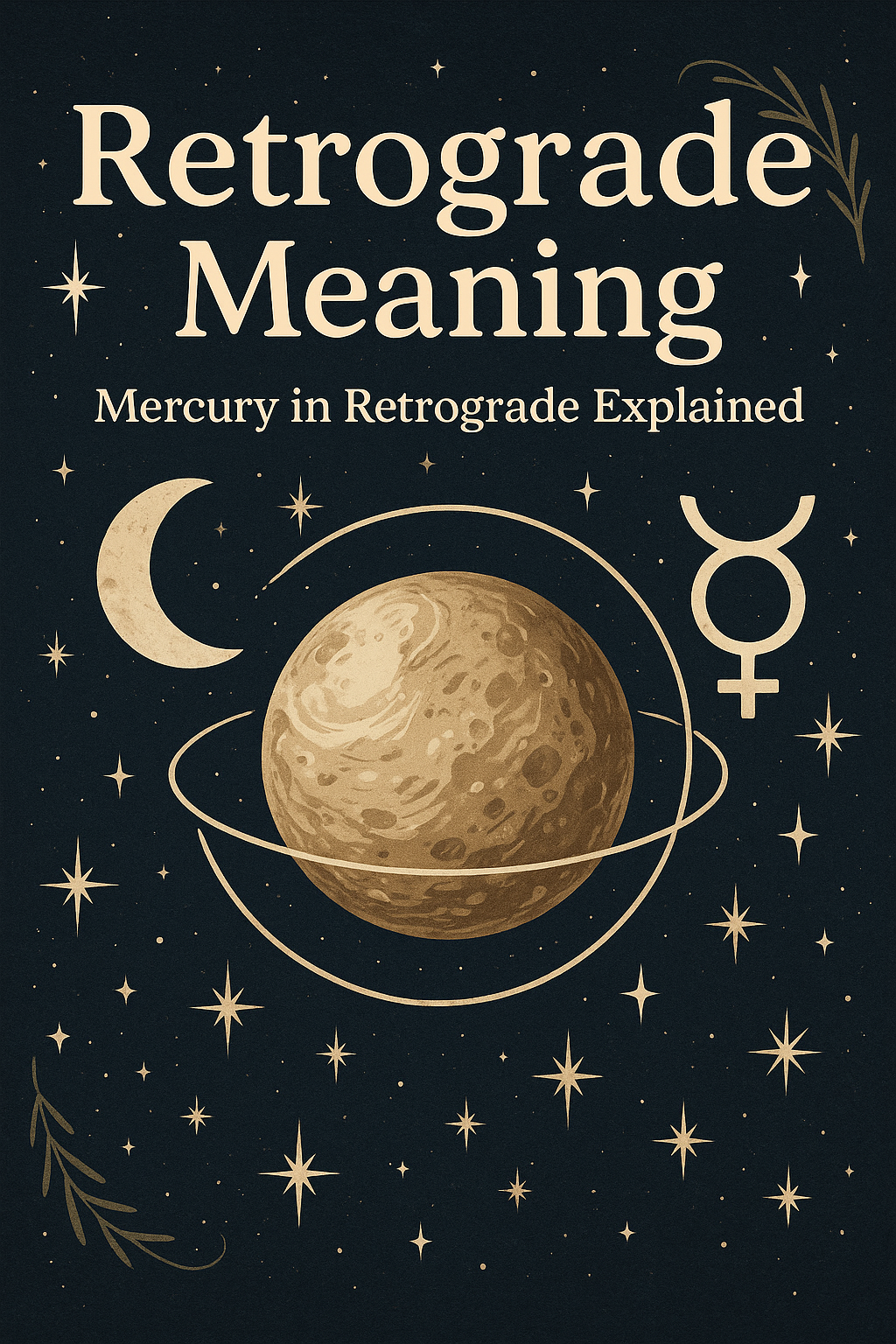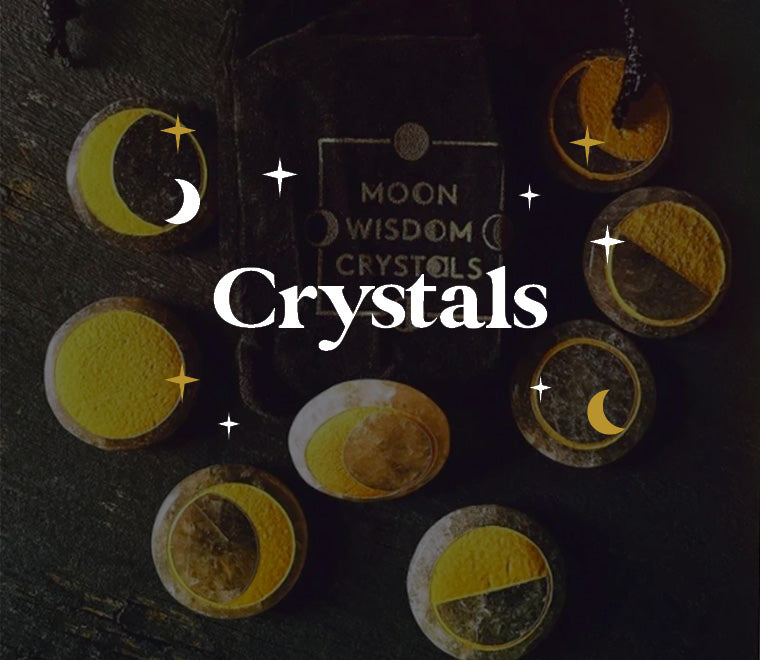The emotional and physical changes experienced through the menstrual cycle can feel pretty extreme. From uterine cramping to mood swings, our bodies go through a lot in just one cycle. While there are many factors that can affect reproductive health, incorporating herbs into our daily routines is one way we can manage symptoms for smoother cycles. Below I have collected some of my favorite plant allies for enhancing health and well-being through the menstrual cycle.
The herbs discussed below are generally safe and well-tolerated. However, this article is not a substitute for medical advice from your healthcare provider. Always check with your doctor or qualified practitioner before initiating any herbal regimen. This is all the more important for those with chronic health conditions or who are currently on prescription medications.
Red raspberry (Rubus idaeus)
This nutritive herb is rich in manganese, essential for increasing oxygenation of the cells and improving muscle tone. Mildly astringent, raspberry leaf is useful for excessive menstrual bleeding and is a general uterine tonic. Best taken as a tea throughout your cycle. Use one tablespoon of dried leaves per 8 oz. of hot water 1-3 times per day.
Nettle (Urtica dioica)
Known as a prickly weed, nettle is packed with calcium, magnesium, potassium and iron. It is best taken regularly to increase mineral intake and reduce menstrual cramps. Make a cold infusion by combining 1 heaping tablespoon of dried herb in 8 oz. of cold water. Let sit overnight, strain, and drink 1-4 cups per day. Dried nettle is also a wonderful addition to soups and broths. Try adding 2-3 heaping tablespoons to your broth for added nourishment.
Milky Oats (Avena sativa)
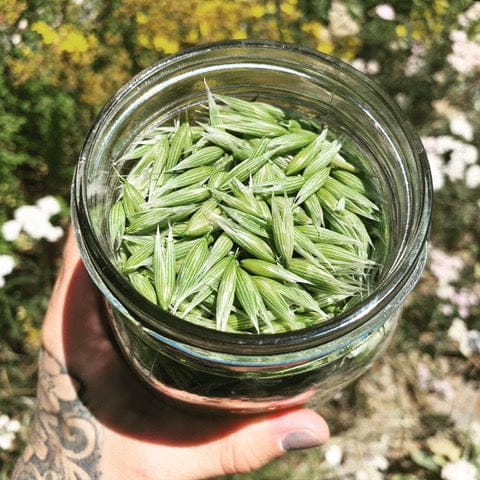
The common oat is also a powerfully soothing and nourishing medicine. Milky oats are not specific to reproductive health; however, they are incredibly nourishing to the nervous system, bolstering our resilience through restoring essential vitamins and minerals. Unripe oat tops have a "milky" stage - where a white liquid can be squeezed from the growing seeds. Be sure to find an extract made with these green tops - sold specifically as milky oats. Milky oats lose some of their medicine when dried, so this is one herb that should be taken in tincture form. Best taken daily to relieve exhaustion, stress, and burnout, take 30 drops of tincture 1-3 times a day. Milky Oats combines well with motherwort (See below).
Motherwort (Leonurus cardiaca)
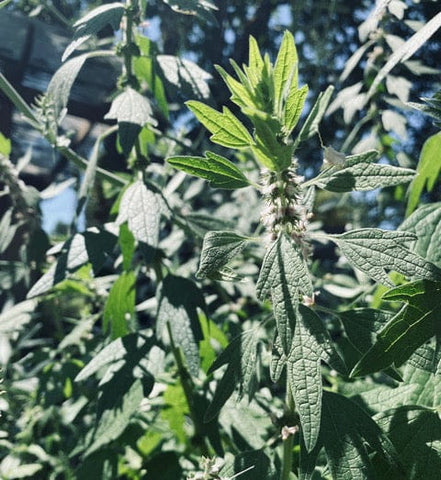
Motherwort is soothing to both the body and the spirit. Its mild vasodilating effect eases smooth muscle cramping at the onset of bleeding. This gentle herb is also helpful for stress and anxiety throughout your cycle. Best taken daily as a tincture, 30 drops 1-3 times per day. The tea doesn't have the best flavor but is an option. Use 1 tablespoon dried herb per 8 oz hot water, 1-3 times per day. Motherwort combines well with milky oats as a daily nerve tonic that won't affect your energy level.
Ginger (Zingiber officinale)
Ginger's spice warms the body and increases circulation, improving blood flow and relieving cramps. This aromatic, stimulating root is essential for the start of your cycle, easing menstrual flow and warming the abdomen. Fresh ginger makes a delicious tea mixed with lemon juice and honey. Finely chop about 1" of the root for each 8 oz. of hot water for tea. Add lemon and honey to taste.
Yarrow (Achillea millefolium)
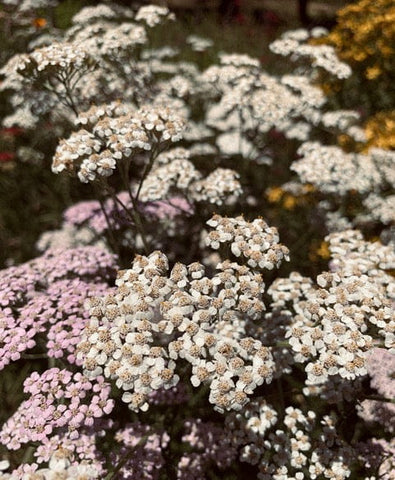
Yarrow is a uterine tonic that helps regulate the flow of blood - both easing excessive bleeding and encouraging the flow of congested blood. It's an anti-inflammatory with a mild menstrual cramp-relieving effect, best taken at the start of your cycle or a few days before. Make a tea using 1 tablespoon dried herb per 8 oz of water. Consume 1-3 cups per day beginning a few days around the start of your cycle for up to seven consecutive days.
Creating an Herbal Routine
Some herbs are more effective when taken for a short period to relieve specific symptoms, while others should be taken daily for best results. It's important to develop a protocol to make sure you're getting the most from the herbs you choose to take. A clinical herbalist can work with you to integrate herbs into your routine to help you achieve your long-term health goals.
Ash is a folk herbalist with over 15 years of experience working with plants. She uses this knowledge to create botanical skincare products and cosmetics for her herbal body care line, Wild Rose Herbs.
To connect with plant magic and other powerful practices, subscribe to our monthly Goddess Provisions box.
Connect with us on Instagram, Facebook, or Twitter and share your favorite ways to use herbs during your cycle!
*These statements have not been evaluated by the Food and Drug Administration. These products are not intended to diagnose, treat, cure, or prevent any disease. Consult your healthcare practitioner before taking herbs.

